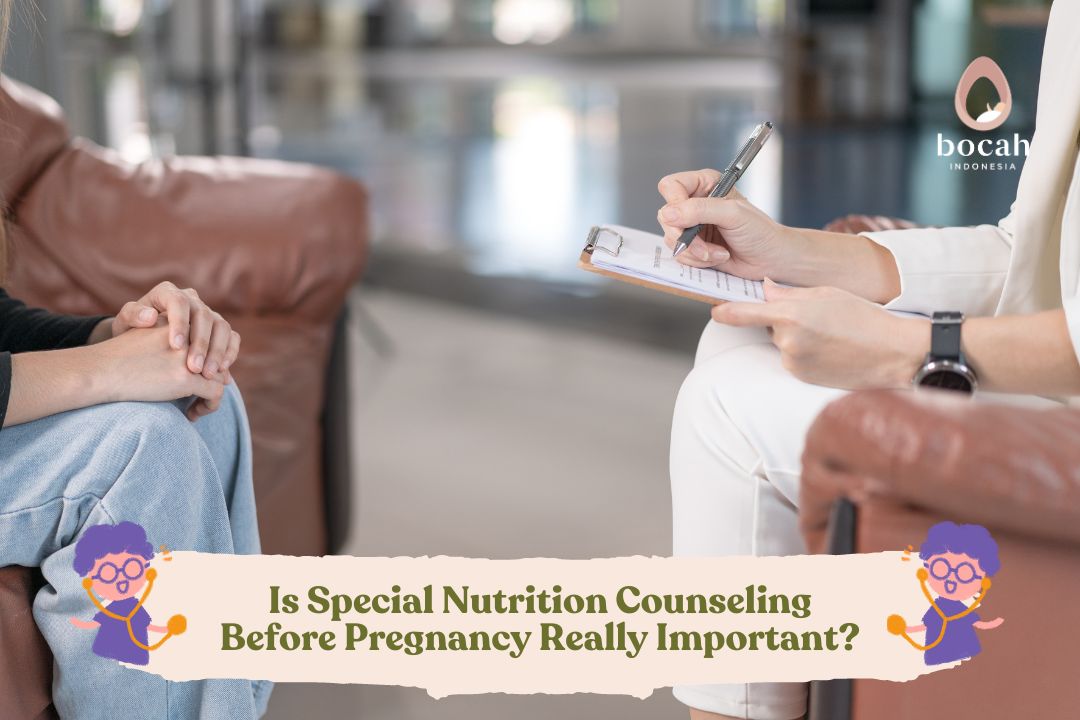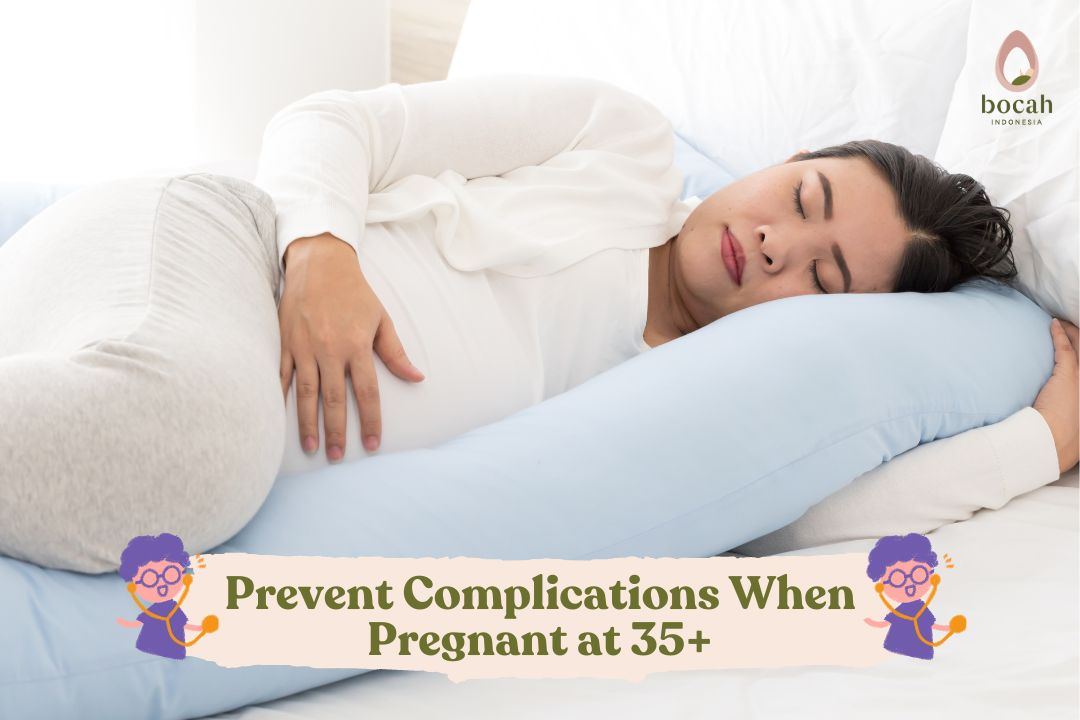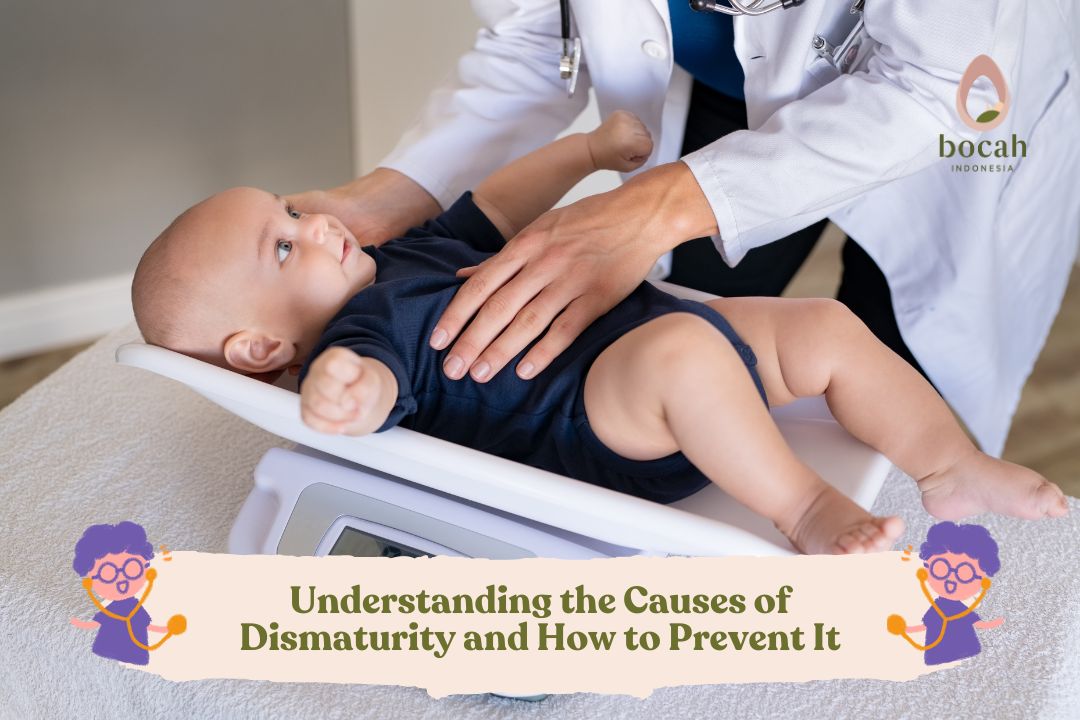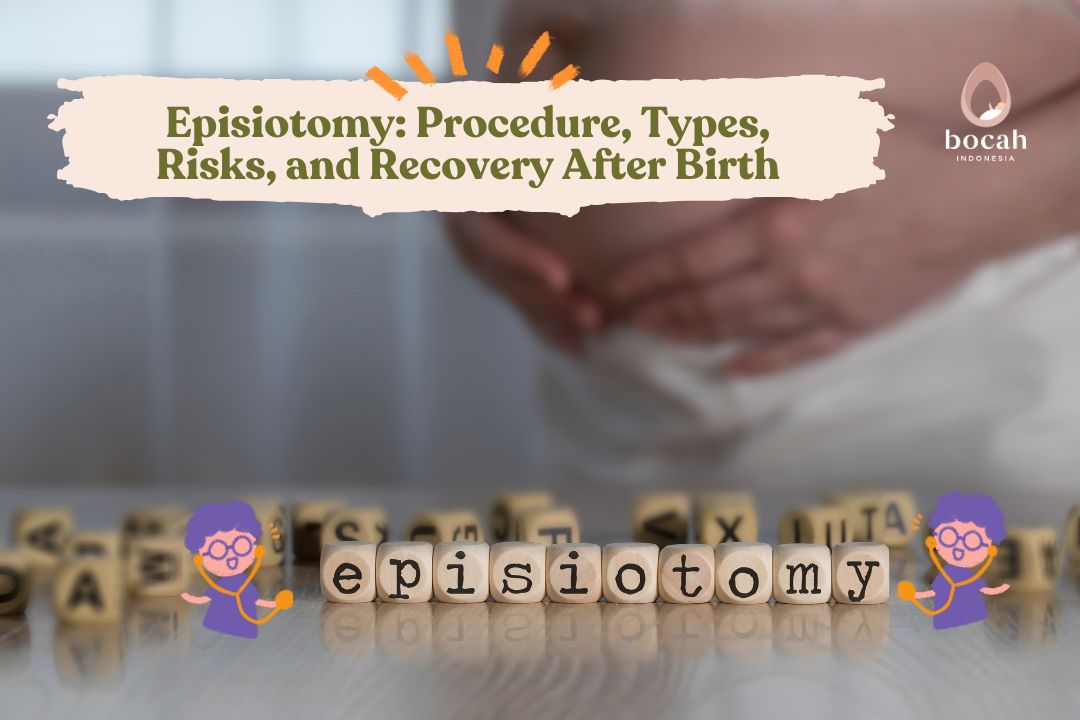Nutritional Requirements to Prevent Birth Defects
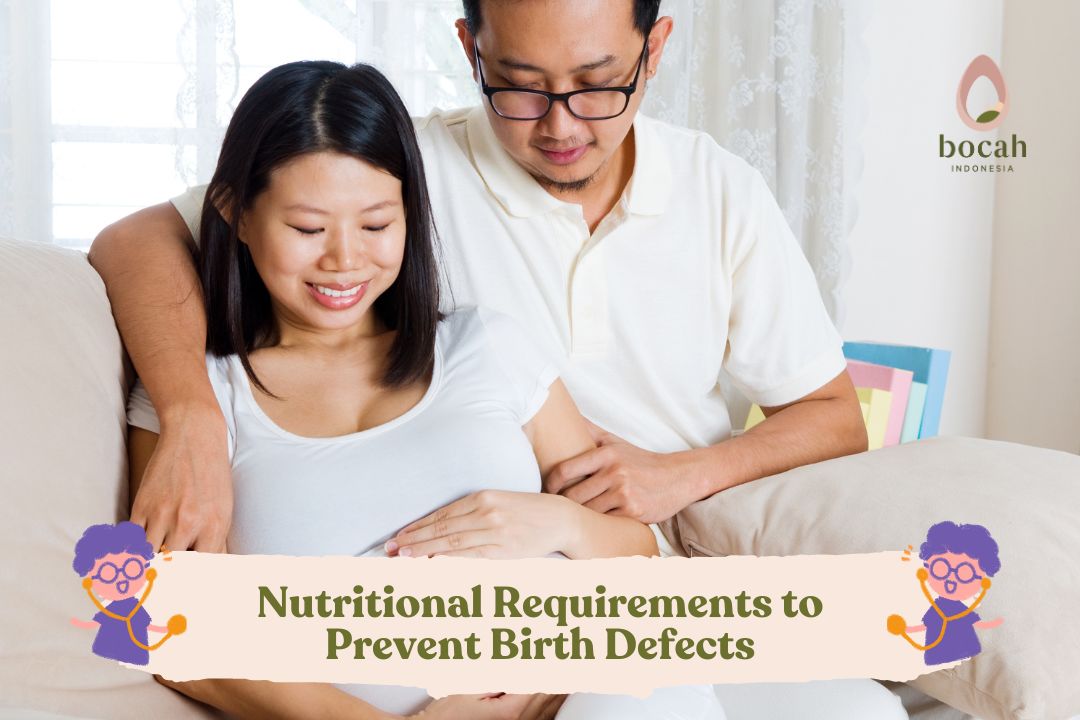
Not all birth defects can be prevented. However, you can increase your chances of having a healthy baby by preventing birth defects with nutrition.<nbsp;
Birth defects are abnormalities in the development of a child’s body that can occur from before birth. There are different types of birth defects, which are caused by a variety of factors ranging from genetic changes to environmental influences during pregnancy.
While not all birth defects can be prevented, your understanding of risk factors and prevention can help in managing the risks that may arise.
One of the ways that Mum can prevent birth defects is by ensuring adequate nutrition. A good intake of nutrients, including folic acid, iron, calcium, and other vitamins is essential during pregnancy to support healthy development in the foetus.
Causes of Birth Defects
Birth defects can occur at any stage of pregnancy. Most birth defects occur in the first 3 months of pregnancy, when the baby’s organs are forming. This is a very important stage of development. However, some birth defects occur later in pregnancy. During the last six months of pregnancy, tissues and organs continue to grow and develop.
For some birth defects, such as foetal alcohol syndrome, the cause may be known. However, for most birth defects, the cause cannot be known. Experts suggest that most birth defects are caused by a complex mix of factors.<nbsp;
Tanya Mincah tentang Promil?
According to the Centers for Disease Control and PreventionCenters for Disease Control and Prevention (CDC) there are several things that may increase a woman having a baby with birth defects, such as:
Smoking, drinking alcohol, or taking certain drugs during pregnancy.
Experiencing certain medical conditions, such as being overweight or having uncontrolled diabetes before and during pregnancy.
Taking certain medications, such as isotretinoin (a drug used to treat severe acne).
- Taking certain medications, such as isotretinoin (a drug used to treat severe acne).
Having a family member with a birth defect.
- Having a family member with a birth defect.
Having certain infections during pregnancy such as Zika virus and cytomegalovirus.
Experiencing a fever of more than 38deg;C or having an elevated body temperature due to exposure to heat.
Pregnant in old age, as the risk of chromosomal abnormalities increases with age.
- Pregnant in old age, as the risk of chromosomal abnormalities increases with age.
It is important to note that having any of the above factors does not guarantee that the baby will be born with birth defects. In fact, some women can have a baby born with birth defects without having any of these risks. Therefore, it is very important to talk to your doctor to ensure a healthy pregnancy.
Dangers of Nutrient Deficiencies During Pregnancy
Deficiencies in essential nutrients during pregnancy can have a serious impact on maternal health and foetal development. One of the dangers is the increased risk of having a low-weight baby, which can lead to health complications in the baby after birth.<nbsp;
In addition, deficiencies in certain nutrients such as folic acid can increase the risk of birth defects in the baby, such as neural tube defects or spina bifida, which can result in serious problems with the baby’s nervous system.<nbsp;
Deficiencies in other nutrients can also impair the development of the baby’s vital organs, including the brain, heart and spine. Therefore, it is important that you ensure a balanced and adequate intake of nutrients during pregnancy to support your health and optimal foetal development.
Other nutrients can also impair the development of the baby’s vital organs, including the brain, heart and spine.
Nutrition Needs to Prevent Birth Defects
To ensure you are getting enough nutrition during pregnancy, the following can be a guide:
To ensure you are getting enough nutrition during pregnancy, the following can be a guide:
Asam folat
To prevent birth defects in babies, it is important to ensure adequate nutrient intake during pregnancy. One very important nutrient is folic acid, which can help prevent neural tube defects or spina bifida as well as other birth defects in babies.<nbsp;
Folic acid can be found in foods such as green vegetables, fruits, whole grains, and fortified cereals. In addition, your doctor may also recommend folic acid supplements to ensure adequate intake. The recommended dose of folic acid for pregnant women is 400 mcg per day. Not only for pregnant women, folic acid also needs to be consumed by women who are starting to plan a pregnancy programme.
Folic acid is also recommended for women who are starting to plan a pregnancy programme.
Iron
Iron plays an important role in helping the formation of red blood cells in pregnant women as well as the development of the developing baby. Iron deficiency can lead to anaemia in pregnant women and increase the risk of premature birth and low-weight babies
This nutrient is required for the formation of red blood cells in the body. The recommended daily intake is about 27 milligrams. Iron-rich sources include green vegetables, beans, various types of meat, and fish.
Calcium
Calcium has an important role in the process of forming baby’s bones and teeth. The recommended daily intake is about 1,000 milligrams of calcium. Foods that contain calcium include milk, tofu, tempeh, beans, fish and cheese.
This nutrient is indispensable for ensuring healthy bone and tooth growth in babies. Calcium deficiency can lead to decreased bone density in pregnant women and increase the risk of developing preeclampsia..
Vitamin D
Mums also need to fulfil their daily vitamin D requirements. Vitamin D plays a role in the absorption of calcium and phosphorus in the body, both of which are important for the growth and development of the baby’s bones. Vitamin D deficiency can increase the risk of preeclampsia and other pregnancy complications.<nbsp;
Vitamin D helps in the absorption of calcium which is necessary for the formation of bones and teeth in the baby, as well as boosting immunity and preventing preeclampsia. The recommended daily intake is about 10 micrograms per day. Food sources that contain vitamin D include salmon, tuna, egg yolks and milk.
Food sources that contain vitamin D include salmon, tuna, egg yolks and milk.
DHA/Omega 3
Omega-3 fatty acids, particularly DHA (docosahexaenoic acid), are useful for baby’s brain and vision development. DHA also helps reduce the risk of premature birth and increases the baby’s weight at birth. The presence of omega-3s is necessary for the formation and development of the baby’s brain, eyes and nervous system. The recommended daily intake is about 300 milligrams of DHA per day.
Foods that contain omega-3 include salmon, tuna, sardines, milk, meat, and nuts. By eating foods rich in omega-3s, pregnant women can help ensure optimal development for the baby in the womb, as well as reduce the risk of premature birth and other health problems.
Protein
Protein is a nutrient that Mum needs during pregnancy as it plays a role in the growth and development of the baby’s developing body cells. During pregnancy, the need for protein increases because your body needs to produce additional protein to support the growth of the baby in the womb.
Enough protein intake during pregnancy is essential to ensure optimal development for the baby. Foods that are good sources of protein include meat, fish, eggs, beans, and dairy products.
By increasing the sources of protein consumed, pregnant women can ensure that they get all the amino acids needed to optimally form the baby’s body cells.
In addition, protein is also important for maintaining the pregnant mother’s own health. During pregnancy, your body goes through a lot of changes, and adequate protein intake can help maintain muscle health, repair damaged body tissues, and support the immune system.
Kolin
Choline is a nutrient that is essential for brain health and cognitive development of developing babies. This nutrient plays a role in the formation of brain cells and affects cognitive functions such as learning and thinking.
During pregnancy, the need for choline increases as your body requires additional supply to support optimal brain development in the unborn child. The recommended daily dose of choline during pregnancy is about 450 milligrams. This requirement can be obtained through the consumption of foods containing choline.
Some food sources that are rich in choline include salmon, milk, meat, and nuts. It is important to note that choline is often under-represented in the daily diet, so it needs to be especially considered during pregnancy. If needed, you can consult your doctor or nutritionist for advice or choline supplements that suit your needs during pregnancy.
Vitamin C
One of the main roles of vitamin C is in iron absorption. Iron is necessary for healthy red blood cell formation and oxygen transport throughout the body, including the developing foetus. Vitamin C helps to increase the absorption of iron from food, which can help prevent or treat anaemia in the mother.
In addition, vitamin C also acts as an antioxidant for the body. Antioxidants help fight cell damage caused by free radicals, which can form due to environmental exposure, pollution and stress. During pregnancy, your body has an increased need for antioxidants to protect cell health and reduce the risk of complications.
Food sources rich in vitamin C include a variety of fruits and vegetables, such as oranges, lemons, tomatoes, watermelon, papaya, strawberries, broccoli, and cauliflower.
In addition to ensuring the intake of the nutrients mentioned earlier, increasing the consumption of pregnancy milk that is rich in iron, folic acid, calcium, inulin, and low in sodium can be optimised. By fulfilling these needs, the health of pregnant women can be well maintained, which in turn will help prevent the birth of babies with defects.
That’s the tips that you can do to maintain nutrition during pregnancy to prevent birth defects. Fulfil your nutritional needs and adequate nutrition. Consult your doctor if needed. Consult your doctor if needed.
This article has been medically reviewed by Dr. Chitra Fatimah.
Source:
- Moreno, Megan A. (2012). Preventing Birth Defects With a Healthy Pregnancy Diet. doi:10.1001/archpediatrics.2011.1582. https://jamanetwork.com/journals/jamapediatrics/fullarticle/1106741
- Korsmo, H., & Jiang, X., & Caudill, M. (2019). Choline: Exploring the Growing Science on Its Benefits for Moms and Babies. Nutrients, 11(8), pp. 1823. https://pubmed.ncbi.nlm.nih.gov/31394787/
- Centers for Disease Control and Prevention. Commit to Healthy Choices to Help Prevent Birth Defects. https://www.cdc.gov/ncbddd/birthdefects/prevention.html
- American Pregnancy Association. Where to Get Folic Acid Naturally During Pregnancy. https://americanpregnancy.org/healthy-pregnancy/pregnancy-health-wellness/where-to-get-folic-acid-naturally-during-pregnancy/
- National Health Service UK (2023). Vitamins, Supplements and Nutrition in Pregnancy. https://www.nhs.uk/pregnancy/keeping-well/vitamins-supplements-and-nutrition/
- Mayo Clinic (2022). Pregnancy Diet: Focus On These Essential Nutrients.https://www.mayoclinic.org/healthy-lifestyle/pregnancy-week-by-week/in-depth/pregnancy-nutrition/art-20045082
- 4 Herbal Medicine to Improve Male Fertility - 01/07/2025
- 7 Signs of PCOS Every Woman Should Know - 30/06/2025
- Ultimate Guide: Boosting Egg Quality for a Healthy Pregnancy Journey - 23/06/2025


